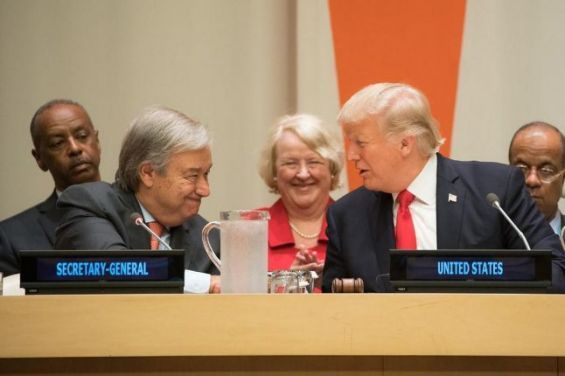In October, the Security Council will be hosting three meetings, on the 9th, 11th and 29th, to discuss the Western Sahara question. At the end of the discussions, Ministers will have to extend the MINURSO’s mandate for another six months.
But before submitting a draft resolution and adopting it, the United Nations Secretary-General is expected to present a series of observations on the latest developments associated with the territorial dispute, starting from April the 29th.
«Antonio Guterres’ report will include some observations related to the obstacles that hinder the efforts of the peacekeeping mission. Due to lack of means, its members cannot cover the entire area located between the security wall and the spot controlled by the Front», a well-informed source told Yabiladi.
Guterres might require the purchasing of an additional helicopter. But since Donald Trump took the oath of office as the President of the United States he decided to cut aids granted by his country to peacekeeping missions.
However, having an additional helicopter could facilitate the work of the MINURSO. The latter will be able to surveil smuggling and drug trafficking groups operating in the area and prevent a violation of the ceasfire ordered on September the 6th, 1991.
A more stable situation
In addition to the financial obstacles, the MINURSO faces other problems. The mission complains about not being able to reach senior members of the Polisario leadership. Six months ago, MINURSO’s head Colin Stewart did not visit the Rabouni camp, located in the Algerian territory.
His last visit dates back to April, when he expressed condolences to the Front following the death of Ahmed Boukhari, the Polisario’s former representative at the UN.
The MINURSO has lost contact with the Front after Colin Stewart refused to move the mission’s headquarters to Bir Lahlou. But despite the MINURSO’s problem, the situation seems calmer that before the adoption of resolution 2414, marked by the Front’s military incursions in the region.
The position of the United States
The current situation does not mean that discussing the Western Sahara issue in October at the Security Council will be an easy task, especially as the United States have already revealed its position on August the 29th.
In a UN Security Council Briefing on the Maintenance of International Peace and Security : Mediation and Settlement of Disputes, Political Coordinator of the U.S. Mission to the United Nations Rodney Hunter commented on the work of keeping missions.
«The United States is going back to these legacy peacekeeping missions and asking hard questions about what we are achieving», he argued.
«We are making a renewed push to see whether the parties are working with the UN to make political progress. And if they are not, we are going to reassess what these missions are doing. Either way, we do mediators no favors when we let the status quo be an end to itself».
The US position is, indeed, very important for the discussions to be held in October at the Security Council and in December in Geneva.





 chargement...
chargement...













